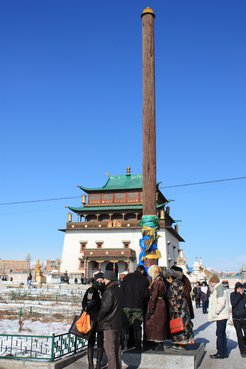New Buddhist Economies in Mongolia: Accrual, Dispersal and the Vicissitudes of Wealth
This project investigates the formation of new Buddhist economies following the end of the socialist period. It is based upon two interrelated themes in Ulaanbaatar. The first explores how religious specialists mediate between and are financed by broader economies. The second examines Mongolian ideas and practices surrounding Buddhist gift-giving. It looks at payments for services in Buddhist temples along with new ideas of religious charity.
Due to the economic changes brought about by the end of socialism and the ‘mining boom’ that has radically transformed the Mongolian economy since the 2000s, Mongolia has seen a drastic increase in wealth disparity. This research traces how changing attitudes to money impact donations to Buddhist institutions, and how these institutions address growing concerns about inequality.
Based on previous research about the spiritual value of money in Mongolia, the study explores the strategies that Mongolians use to navigate mundane and supra-mundane religious economies. It looks at how ritual activities incorporate or sideline financial imperatives and money. And, how money itself is perceived as living or inert, generative or depletive, polluted, corrupted, blessed or neutral.

